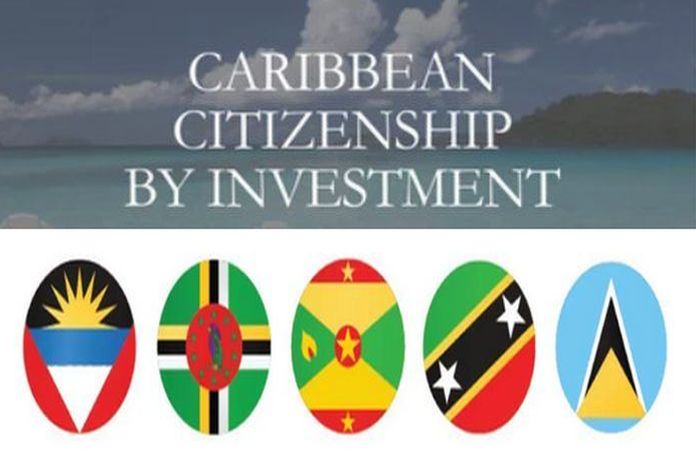By Special contributor
DUBAI, UAE – The Caribbean Citizenship by Investment (CBI) programs are at a critical juncture, grappling with the need for unified action to maintain integrity and credibility.
While recent reforms, such as the Memorandum of Agreement (MOA) signed by five Caribbean nations, aim to standardize practices and improve transparency, inconsistencies remain in how these programs handle unethical agents and service providers.
This article explores the disparity in blacklisting practices among Caribbean CBIs, using recent examples to highlight the challenges and the urgent need for solidarity.
The principle of unified action
The MOA, signed by Antigua and Barbuda, Dominica, Grenada, St Kitts and Nevis, and Saint Lucia, represents a significant step toward regional cooperation. It includes provisions for standardized minimum investment thresholds, enhanced due diligence processes, and information sharing. Notably, one of its key principles is that applicants rejected by one CBI program cannot apply to another – a measure aimed at ensuring security and compliance.
However, this principle of unified action seems to falter when it comes to addressing unethical agents or service providers. While applicants are uniformly blacklisted across programs upon rejection, the same cannot be said for agents or companies that engage in fraudulent or unethical practices. This inconsistency undermines the credibility of the CBI programs and raises questions about their commitment to justice and fairness.
Recent developments in St Kitts and Nevis illustrate this disparity. The St Kitts and Nevis Citizenship by Investment Unit (CIU) has taken strong steps to blacklist companies such as AAA Associates for alleged violations of program rules. Despite these actions, these entities continue to operate in other Caribbean CBI jurisdictions without facing similar sanctions.
AAA Associate blacklisted by St Kitts and Nevis remains active in promoting Dominica’s CBI program and RFT Trust for alleged misconduct, this company has not been blacklisted by St Kitts and Nevis or other Caribbean CBIs despite its questionable practices.
This lack of coordinated action allows unethical actors to exploit regulatory gaps between jurisdictions, damaging the reputation of all Caribbean CBI programs.
The problem of discounting
One of the most pervasive issues plaguing Caribbean CBIs is “illegal discounting” or “underselling,” where agents offer citizenship at prices below the legally mandated thresholds. This practice not only undermines the financial integrity of the programs but also attracts scrutiny from international bodies like the United States and the European Union.
St Kitts and Nevis has been proactive in addressing discounting:
- Prime Minister Terrance Drew has initiated investigations into irregularities within the CBI program.
- The government has made underselling illegal as part of broader reforms.
- Affected individuals who obtained citizenship through discounted deals have been given until December 31, 2024, to rectify their situation by paying outstanding balances.
Saint Lucia faces similar challenges but has been slower to act decisively:
- A RICO lawsuit filed and [dismissed without prejudice] in US federal court implicated several stakeholders in Saint Lucia’s CBI program.
- Allegations include fraud, money laundering, and kickbacks.
- Controversy surrounds retroactive approvals for enterprise projects under its CBI program.
These examples highlight how discounting practices erode trust in CBI programs and emphasize the need for unified action against bad actors.
Why unified blacklisting matters. The failure to uniformly blacklist unethical agents across all Caribbean CBIs creates several problems:
- Reputational Damage**: Allowing blacklisted entities to operate in other jurisdictions tarnishes the reputation of all CBI programs.
- Regulatory Gaps**: Inconsistent enforcement creates loopholes that bad actors can exploit.
- Investor Confidence**: Legitimate investors may lose confidence in programs perceived as poorly regulated or inconsistent.
- International Scrutiny**: Disparities in enforcement attract criticism from international stakeholders concerned about security risks and compliance with anti-money laundering laws.
Steps toward unified action
To address these issues effectively, Caribbean CBIs must adopt a more cohesive approach:
- Centralized Blacklist: Establish a shared database of blacklisted agents accessible to all participating countries.
- Clear Criteria: Define transparent standards for blacklisting agents and service providers.
- Information Sharing: Strengthen communication channels between CBI units to ensure timely updates on blacklisted entities.
- Regional Oversight: Expedite the establishment of a regional regulatory body with authority over all CBI programs.
- Accountability Mechanisms: Implement penalties for jurisdictions that fail to enforce agreed-upon standards.
The role of the Interim Regulatory Commission
The Interim Regulatory Commission (IRC), established under the MOA framework, is a promising step toward greater oversight. Comprising representatives from each participating country, the IRC is tasked with developing standards for compliance and monitoring across all CBI programs.
Once fully operational, the IRC could play a pivotal role in ensuring that blacklisted agents are uniformly excluded from all Caribbean CBIs. This would not only enhance program integrity but also restore investor confidence and address international concerns.
The principle of justice demands consistency in how Caribbean CBIs handle unethical actors – whether they are applicants or agents. While progress has been made in standardizing applicant rejections through measures like the MOA, significant gaps remain when it comes to blacklisting service providers who violate program rules.
The cases of RFT Trust and AAA Associates underscore the urgent need for unified action among Caribbean CBIs. By adopting a centralized blacklist, strengthening information sharing, and empowering regional oversight through bodies like the IRC, these programs can safeguard their integrity and reputation.
As Caribbean nations work toward implementing these reforms, they must remember that solidarity is not just an ideal – it is a necessity for ensuring justice, transparency, and long-term sustainability in their CBI programs. Only by standing together can they address existing challenges and secure a prosperous future for this vital industry.





